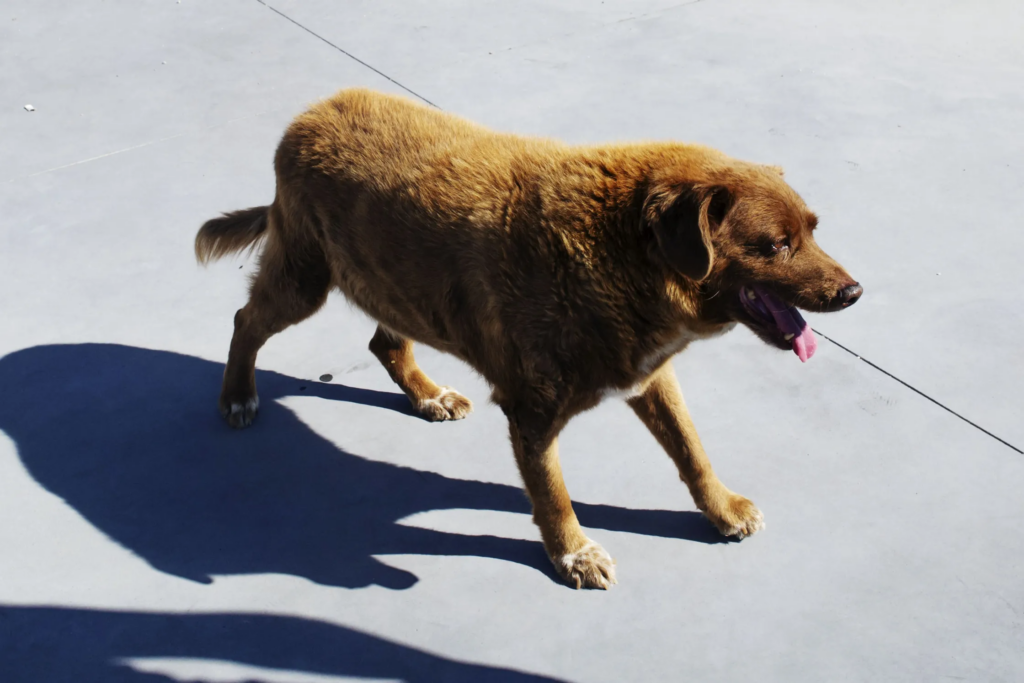Shaggy dog story
If Bobi fooled the Guinness Book, does anything mean anything?

Bobi was a good dog. Bobi was a cute dog. Bobi was the oldest dog that ever lived—allegedly.
The Portuguese dog died Oct. 23, at the recorded age of 31 years and 163 days. Seven months before that, Bobi was certified by Guinness World Records as the first dog on record to ever live to be 30 years old, and thus the oldest dog ever. There was much fanfare at the time surrounding Bobi, of the Rafeiro de Alentejo breed (which typically has a life expectancy of 12-14 years) who was peacefully living with the owners who had him since his birth.

But in months since his death, there have been growing allegations of dog-age fraud.
In an interview with The Guardian, Danny Chambers, a veterinarian and Royal College of Veterinary Surgeons council member, said that “not a single one of my veterinary colleagues believe that Bobi was actually 31 years old.” He explains that it would be equivalent to a person living to 200: “completely implausible.”
Canine conundrum
The veterinarians demand that the Guinness Book publish irrefutable evidence – if they want to maintain any integrity and legitimacy they claim to have, that is. Meanwhile, Guinness says that Bobi’s claim was “verified” by:
· Bobi’s owner, 38-year-old Leonel Costa, telling the powers at be that he was eight when Bobi was born in a building on the Costa family property
· Photos of “Bobi” dating back to 1999
· Bobi’s registration at the Veterinary Medical Service of the Municipality of Leila, confirming Bobi’s birthdate
· Bobi’s age as verified by the SIAC, a Portuguese government pet database
Matt Reynolds, a writer from Wired, recently decided to intensely pursue the Bobi-the-dog-fraud story, and unleash Bobi-Gate on the world. Guinness told Reynolds they are “aware of the questions surrounding the legitimacy of the record and are reviewing them.” Reynolds then contacted SIAC, who told him that the information on record was provided by the dog’s owner, and that they have “no registration or data that can confirm or deny this statement” of the dog’s age.
Dun-dun-dunnnnn!
Reynolds went on to consult a dog longevity expert and an expert on dog coat color (Bobi has white paws in 1999 photos, but not in later ones), and both experts essentially shrugged and said that there was no way to be sure. During the extended investigatory saga, there were even suspicions that pet food companies were feeding the controversy (Bobi’s owners said he only ate “human food”).
Record scratch
First published in 1955, the Guinness Book was famously intended to be an authoritative source and gold standard for all things superlative. You’d think they would then have an obligation to fact-check and irrefutably verify all of their included records – especially considering that it’s the world’s best-selling copyright book, moving 3.5 million copies per year (outsold only by the Bible, the Koran, and Chairman Mao). In theory, they’re heavily invested in the legitimacy of their published records.
The company’s website says “Guinness World Records has an expertly trained Records Management Team who undertake substantial research and verification checks to confirm whether a new record title has been achieved.”
We’d humbly suggest that this “team” stick to easily verifiable and legitimate records, such as “largest gathering of people dressed as Albert Einstein” (541), “farthest distance to throw a pea” (about 85 feet), or “most spoons ever balanced on a human body” (88).
Or maybe we can just take the Guiness Book of World Records for the bizarre, sometimes gray-area-adjacent material it is, and let sweet Bobi rest in peace.
